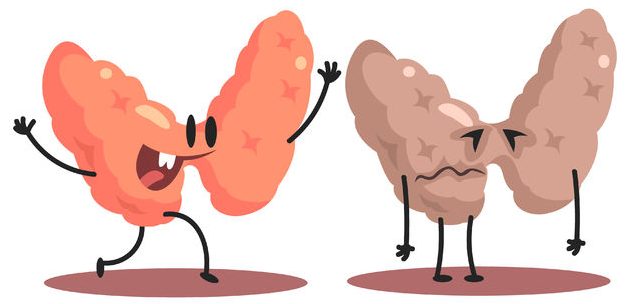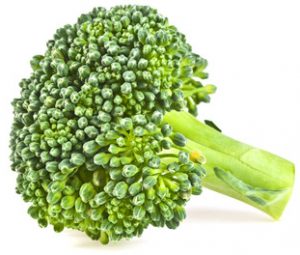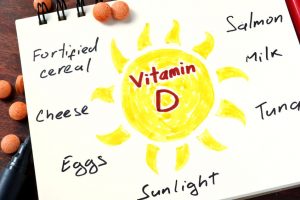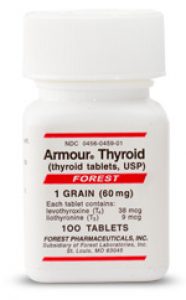
Last Updated on
Table of Contents
Introduction

An underactive thyroid gland or hypothyroidism is indicated by a number of symptoms including but not limited to fatigue, increased sensitivity to cold, weight gain, thinning hair, depression, impaired memory, muscle aches and tenderness, irregular menstrual periods, and slowed heart rate.
Although experiencing these symptoms and dealing with hypothyroidism can be quite frustrating, you are not helpless.
Along with adherence to doctor’s orders and following treatment recommendations, various options allow you to boost thyroid function naturally.
This article reveals the most effective ways to do so.
Diet/Nutrition
Generally speaking, the types of food that you eat plays a major role in hypo or hyperthyroidism diet. Specific diets can help alleviate symptoms and restore your thyroid balance.

These types of foods are rich in Iodine.
Sufficient iodine intake is a must! (Unless, of course, it is harmful for you. Some patients with Hashimoto’s Thyroiditis feel worse with Iodine.)
Iodine deficiency is the primary cause of hypothyroidism in most people.
Evidence shows that iodine controls thyroid function[i] and plays a major role in the development of conditions associated with underactive thyroid or the opposite effect – hyperthyroidism.
Data shows that iodine intake among Americans is adequate[ii], meaning it might not be necessary to tamper with enhancing iodine consumption without consulting your doctor first.
Instead, focus on foods you should eat or avoid in order to boost thyroid functioning.
Foods to avoid
Some nutrients in food have a major influence on the function of thyroid gland while some other foods decrease the body’s ability to absorb replacement hormones you take as a hypothyroidism treatment.
Below, you can see the list of foods to avoid (or limit) if you want to boost thyroid function:
Soy
It is a phytoestrogen which can interfere with the body’s ability to use thyroid hormone.
Studies show that soy foods, “by inhibiting absorption, may increase the dosage of thyroid hormone required by hypothyroid patients.”[iii]
You don’t need to banish soy from the menu, if you’re not able to, but stick to the moderate to low intake.

Broccoli can interfere with thyroid hormone synthesis.
Cruciferous vegetables
Broccoli, cabbage, and other members of this family can interfere with the production of thyroid hormone, particularly in those with iodine deficiency.
Evidence suggests that very high intake of cruciferous vegetables has been found to cause hypothyroidism.
It could be down to hydrolysis of chemical progoitrin which yields a compound called goitrin. This compound interferes with synthesis of thyroid hormone.[iv]
What you can do is to limit intake of these vegetables or cook them.
One study showed that cooking cruciferous vegetables reduces their effect on thyroid gland.[v]
Gluten
High intake of gluten can irritate the small intestine and, thus, hamper the absorption of thyroid hormone replacement medication.
Opt for whole grain varieties instead.
Fatty foods
Just like with gluten and many other nutrients, fats disrupt the body’s ability to absorb thyroid hormone replacement medication and they also interfere with the thyroid’s ability to produce hormone
Sugary foods
The main reason to avoid them is that they contribute to weight gain.
Since hypothyroidism is associated with weight gain, you should reduce or limit intake of foods that prevent you from maintaining your weight adequately
Processed foods
They are abundant in sodium because it would make you more susceptible to high blood pressure resulting health risks
Coffee
One study found that coffee interferes with the intestinal absorption of levothyroxine or T4[vi], the standard drug for treatment of hypothyroidism and thyroid cancer
Foods to eat
Although some foods can impair the absorption of thyroid replacement hormone or increase the risk of hypothyroidism, many nutrients support proper functioning of the gland. Below, you can see the list of foods which support thyroid health and benefit persons with hypothyroidism:

Fish and nuts are great foods for the thyroid
Fatty fish
Rich in Omega-3 fatty acids which reduce the risk of heart disease associated with hypothyroidism. These healthy fats decrease inflammation and strengthen the immune system.
Evidence shows that consumption of Omega-3s ameliorates memory deficits and act as a useful neuroprotective agent against hypothyroidism-induced cognitive impairment[vii]
Nuts
They are a rich source of selenium, mineral known for its ability to support thyroid functioning
Whole grains
Constipation is one of many symptoms of hypothyroidism. Whole grain foods are rich in important nutrients and they also provide fiber, which is essential for regular and healthy digestion.
Excessive amounts of fiber can interfere with synthetic thyroid hormones. Make sure you take your medications several hours before or after foods rich in dietary fiber
Fresh fruits and vegetables
They are low in calories, abundant in antioxidants, vitamins, minerals, and other nutrients.
Plus, intake of fresh fruits and some vegetables allows you to keep weight in a healthy range more successfully. Studies show that plant-based diet reduces the risk of hypothyroidism.[viii] Of course, limit intake of cruciferous vegetables or cook them
Coconut oil
Supports healthy metabolism, boosts energy levels, and tackles fatigue. Plus, coconut oil is easy to digest, nourishes your digestive system, and exhibits antioxidant, antimicrobial, and antibacterial effects that suppress inflammation
Probiotic-rich foods
They create a healthy gut environment by balancing microflora bacteria to reduce nutrient deficiencies, leaky gut syndrome, inflammation.
One study found that probiotics are effective in management of small intestinal bacterial overgrowth (SIBO)[ix], associated with hypothyroidism
Supplements
Boosting thyroid function is not just about taking medications, but making some healthier habits.
As shown above, some foods can help improve thyroid functioning due to nutrients they contain.
Even though we consume these nutrients through food, sometimes the amount isn’t sufficient i.e. doesn’t meet daily requirements.
In this case, supplements can be of huge help. They deliver specific nutrients and enable you to meet the recommended daily intake. Here is the list of supplements for hypothyroidism:
Vitamin B
Crucial for people with hypothyroidism because vitamins from B complex play a role in thyroid function and hormone regulation. Studies show that patients with hypothyroidism are deficient in vitamin B12.[x] When looking for supplements, opt for those with vitamin B complex rather than individual vitamins
Selenium
Supports thyroid synthesis and metabolism. Check out this article for more information on selenium and it’s benefits for the thyroid.
Zinc
Plays a role in the conversion of the thyroid hormone T4 to T3. Evidence suggests zinc deficiency is also associated with hypothyroidism[xi]
Tyrosine
Involved in thyroid hormone production and conversion. Tyrosine is an amino acid and studies show hypothyroidism is caused by impaired T4 production and deficiency in amino acids. Supplementation with these amino acids, primarily tyrosine, gives a rapid increase in T4 and T3[xii]

Vitamin D is very helpful for thyroid hormones
Vitamin D
A growing body of evidence confirms the link between low levels of sunshine vitamin and autoimmune thyroid diseases.[xiii] Also, studies reveal patients with hypothyroidism are deficient in vitamin D[xiv] as well.
In most cases food sources of this vitamin are insufficient and supplements come as an effective way to solve this problem. Lacking this vitamin can lead to unwanted fatigue.
Probiotics
If you don’t consume enough probiotic-rich foods, supplements are a practical solution to support thyroid functioning
Omega-3 fatty acids
Just like with probiotic supplements, if you don’t consume sufficient amount of Omega-3-rich foods (fatty fish), then you could benefit from Omega-3 supplementation
Thyroid Supplements
Thyroid support supplements are popular ways of enhancing your nutrition to make sure you get all the vitamins, minerals, and herbs needed to allow your thyroid to function at its best.
We review some thyroid supplements on this website.
We take all of our thyroid support supplement product reviews very seriously and each product is personally reviewed with great care. This is to provide you with enough information to make an informed decision, before spending your hard earned money.
A short list of the five best supplements we reviewed thus far, can be found below with an excerpt. The full list of the thyroid support supplements can be found here.
Natural desiccated thyroid

Armour Thyroid is a popular brand of natural desiccated thyroid treatment
Treatment of hypothyroidism nowadays revolves around taking Synthroid or another synthetic thyroid medication such as Cytomel.
This medication provides a synthetic version of hormone T4 known as levothyroxine. Although most widely used, these aren’t the only drugs for hypothyroidism.
The natural desiccated thyroid is common, and obviously, natural method of supporting proper functioning of thyroid gland.
The term refers to a prescription form of thyroid hormone replacement. Here, the hormone isn’t synthetic. Check out this article for more information on Natural Desiccated Thyroid vs Synthroid.
Instead, it is made of the desiccated thyroid gland of animals, most commonly pigs. Armour Thyroid is the most well-known type of these medications. Nature Throid is another popular one.
Although the use of natural desiccated thyroid is considered controversial by some, studies show Armour Thyroid is beneficial for the treatment of hypothyroidism.
One research discovered natural thyroid was equal to levothyroxine in the improvement of the quality of life among patients.
However, natural thyroid also caused modest weight loss and participants preferred it over levothyroxine[xv].
It is needless to mention you should consult your doctor about this topic and natural desiccated thyroid before making a decision whether to start using it or not.
Essential oils
Essential oils have been around for centuries and are well-known for their health benefits.
While most people do not use these, as the effect they have on thyroid disorders is rather low compared to the other options we have talked about, oils are useful for relieving or managing some of the symptoms associated with hypothyroidism.
With that being said, many experts believe it is very unlikely oils will cure or improve your thyroid disorder in any way.
Below, you can see the list of the most effective essential oils you can use to improve thyroid function in a natural manner:

Essential Oils may be helpful in managing thyroid symptoms
Clary sage oil
One study discovered the inhalation of this essential oil reduces cortisol (stress hormone) levels by 36% and it also improved thyroid hormone levels.[xvi]
Spearmint
Helps relax the intestines and eases constipation and gas, symptoms associated with hypothyroidism
Lemongrass oil
Alleviates headaches and reduces inflammation, which are also linked to hypothyroidism. In addition, it tackles muscle joint pains and aches, detoxifies digestive tract, and improves immune system health
Geranium
Reduces inflammation and helps manage stress and depression. This oil has the potential to balance hormone levels in the body
Clove oil
Anti-inflammatory
Rosemary oil
Dubbed practical for hair loss
Frankincense
Effective in prevention of memory deficit and cognitive decline[xvii] linked to hypothyroidism
Lifestyle
To improve thyroid function, you have to be more mindful regarding your lifestyle.
The rule is simple; if you want to be healthier and manage your condition successfully, then you have to make some tweaks in your lifestyle.
Sometimes we overlook our daily habits, but they can either help us or destroy our efforts. Here are some useful lifestyle adjustments to make for better thyroid functioning:
Eat a healthy, well-balanced diet
Tips for adequate nutrition are shown above. Diet is an inseparable part of a healthy lifestyle.
Exercise
Regular physical activity helps you keep weight in a healthy range or aids weight loss if you’re overweight/obese.
This is particularly important if you bear in mind that hypothyroidism is linked to weight gain. Studies show that regular exercise increases T3 and T4 levels in the body.
Scientists recommend hypothyroid patients to do regular physical exercise to improve thyroid function.[xviii]
Get enough sleep
The importance of good night’s rest is usually overlooked, but it plays a major role in your health. Sleep deprivation is strongly linked to hypothyroidism.[xix]
Also, it increases your stress levels, affects productivity, lowers energy levels, among other things.
Reduce stress
The effect of stress on thyroid function is complicated. Changes induced by stress on the serotonergic system (part of brain function) and cortisol levels may affect the metabolism of thyroid hormones.
A growing body of evidence confirms that stress has an impact on thyroid levels[xx] while-de-stressing improves thyroid functioning and serum levels of hormones. The choice of stress-relieving method depends on you.
Ideally, you should do something that relaxes you every time e.g. count to 10 and take deep breaths
Quit smoking
This bad habit doesn’t only wreak havoc on your skin or in lungs, but your entire body.
One study found that smoking is negatively associated with hypothyroidism.[xxi] To support the health of this gland and preserve your eyes, strive to quit smoking.
For this, you’ll need strong willpower and support from loved ones
Meditate and practice yoga
Both ancient practices are incredibly beneficial for your mind, body, and soul.
Meditation combats stress just like yoga. Also, one study found that yoga has a beneficial effect on pulmonary functions of hypothyroid patients.[xxii]
Both meditation and yoga are easy on your joints and muscles
Know other ways of naturally improving the thyroid? Let us know below.
Conclusion
Underactive thyroid is a common, but the manageable problem that we face nowadays.
The condition is indicated by a number of symptoms and treatment usually revolves around the intake of medications.
Adherence to the recommended treatment is always important, but you shouldn’t forget to make adjustments in your lifestyle including diet in order to feel better and healthier with improved thyroid function.
References
[i] Chung HR. Iodine and thyroid function. Annals of Pediatric Endocrinology & Metabolism. 2014;19(1):8-12. doi:10.6065/apem.2014.19.1.8. https://www.ncbi.nlm.nih.gov/pmc/articles/PMC4049553/
[ii] Iodine deficiency, Medscape http://emedicine.medscape.com/article/122714-overview#a3
[iii] Messina M, Redmond G. Effects of soy protein and soybean isoflavones on thyroid function in healthy adults and hypothyroid patients: a review of the relevant literature. Thyroid 2006 Mar,16(3):249-58. Doi: 10.1089/thy.2006.16.249 https://www.ncbi.nlm.nih.gov/pubmed/16571087
[iv] Cruciferous vegetables, Oregon State University http://lpi.oregonstate.edu/mic/food-beverages/cruciferous-vegetables#iodine-thyroid-function
[v] McMillian M, Spinks EA, Fenwick GR. Preliminary observations on the effect of dietary Brussels sprouts on thyroid function. Human Toxicology 1986 Jan;5(1):15-9 https://www.ncbi.nlm.nih.gov/pubmed/2419242
[vi] Benvenga S, Bartolone L, Pappalardo MA, et al. Altered intestinal absorption of l-thyroxine caused by coffee. Thyroid 2008 Mar;18(3):293-301. Doi: 10.1089/thy.2007.0222 https://www.ncbi.nlm.nih.gov/pubmed/18341376?dopt=Citation
[vii] Abd Allah ES, Gomaa AM, Sayed MM. The effect of Omega-3 on cognition in hypothyroid male rats. Acta Physiologica Hungarica 2014 Sep;101(3):362-76. Doi: 10.1556/APhysiol.101.2014.3.11 https://www.ncbi.nlm.nih.gov/pubmed/25183510
[viii] Tonstad S, Nathan E, Oda K, Fraser G. Vegan Diets and Hypothyroidism. Nutrients. 2013;5(11):4642-4652. doi:10.3390/nu5114642. https://www.ncbi.nlm.nih.gov/pmc/articles/PMC3847753/
[ix] Patil AD. Link between hypothyroidism and small intestinal bacterial overgrowth. Indian Journal of Endocrinology and Metabolism. 2014;18(3):307-309. doi:10.4103/2230-8210.131155. https://www.ncbi.nlm.nih.gov/pmc/articles/PMC4056127/
[x] Jabbar A, Yawar A, Waseem S, et al. Vitamin B12 deficiency common in primary hypothyroidism. Journal of the Pakistan Medical Association 2008 May;58(5):258-61. https://www.ncbi.nlm.nih.gov/pubmed/18655403
[xi] Betsy A, Binitha M, Sarita S. Zinc Deficiency Associated with Hypothyroidism: An Overlooked Cause of Severe Alopecia. International Journal of Trichology. 2013;5(1):40-42. doi:10.4103/0974-7753.114714. https://www.ncbi.nlm.nih.gov/pmc/articles/PMC3746228/
[xii] Tahara Y, Hirota M, Shima K, et al. Primary hypothyroidism in an adult patient with protein-calorie malnutrition: a study of its mechanism and the effect of amino acid deficiency. Metabolism, 1988 Jan;37(1):9-14 https://www.ncbi.nlm.nih.gov/pubmed/3121981
[xiii] Kivity S, Agmon-Levin N, Zisappl M, et al. Thyroid disease and vitamin D deficiency. Annals of the Rheumatic Diseases 2010;69:A62. Doi: 10.1136/ard.2010.129650g http://ard.bmj.com/content/69/Suppl_2/A62.1
[xiv] Mackawy AMH, Al-ayed Bushra Mohammed, Al-rashidi Bashayer Mater. Vitamin D Deficiency and Its Association with Thyroid Disease. International Journal of Health Sciences. 2013;7(3):267-275. https://www.ncbi.nlm.nih.gov/pmc/articles/PMC3921055/
[xv] Hoang TD, Olsen CH, Main VQ, et al. Desiccated thyroid extract compared with levothyroxine in the treatment of hypothyroidism: a randomized, double-blind, crossover study. Journal of Clinical Endocrinology and Metabolism 2013 98(5):1982-1990. Doi.10.1210/jc.2012-4107 https://academic.oup.com/jcem/article/98/5/1982/2536971/Desiccated-Thyroid-Extract-Compared-With
[xvi] Lee KB, Cho E, Kang YS. Changes in 5-hydroxytryptamine and cortisol plasma levels in menopausal women after inhalation of clary sage oil. Phytotherapy Research 2014 Nov;28(11);1599-605. Doi: 10.1002/ptr.5163. https://www.ncbi.nlm.nih.gov/pubmed/24802524
[xvii] Hosseini M, Hadjzadeh MA, Derakhshan M, et al. The beneficial effects of olibanum on memory deficit induced by hypothyroidism in adult rats tested in Morris water maze. Archives of Pharmacal Research 2010 Mar;33(3):463-8. Doi: 10.1007/s12272-010-0317-z. https://www.ncbi.nlm.nih.gov/pubmed/20361313/
[xviii] Bansal A, Kaushik A, Singh CM, et al. The effect of regular physical exercise on the thyroid function of treated hypothyroid patients: an interventional study at a tertiary care center in Bastar region of India. Archives of Medicine and Health Sciences 2015, Volume 3, Issue 2, 244-246. Doi: 10.4103/23214848.171913 http://www.amhsjournal.org/article.asp?issn=2321-4848;year=2015;volume=3;issue=2;spage=244;epage=246;aulast=Bansal
[xix] Rodrigues NC, da Cruz NS, Nascimento CP,et al. Sleep deprivation alters thyroid hormone economy in rats. Experimental Physiology 100.2 (2015) 193-202 http://onlinelibrary.wiley.com/doi/10.1113/expphysiol.2014.083303/pdf
[xx] Walter KN, Corwin EJ, Ulbrecht J, et al. Elevated thyroid stimulating hormone is associated with elevated cortisol in healthy young men and women. Thyroid Research. 2012;5:13. doi:10.1186/1756-6614-5-13. https://www.ncbi.nlm.nih.gov/pmc/articles/PMC3520819/
[xxi] Asvold BO, Bjoro T, Nilsen LJ. Tobacco smoking and thyroid function: a population-based study. Archives of Internal Medicine, 2007 Jul 9;167(13):1428-32. Doi: 10.1001/archinte.167.13.1428 https://www.ncbi.nlm.nih.gov/pubmed/17620538
[xxii] Swami G, Singh S, Singh KP, Gupta M. Effect of yoga on pulmonary function tests of hypothyroid patients. Indian Journal of Physiology and Pharmacology 2010 Jan-Mar;54(1):51-6 https://www.ncbi.nlm.nih.gov/pubmed/21046920






Really recommend Zinc for everyone with hypothyroidism. My blood tests came back very low for that so my doctor prescribed zinc tablets. After a couple weeks, my symptoms didn’t feel as bad as they used to. Excited to see my thyroid levels in a couple weeks to see how they improved.
Hi Celeste,
Definitely agree with you. Actually wrote an article on Zinc a couple days ago here. Unfortunately, not a lot of people know how it influences thyroid hormone production and synthesis. Hopefully that will change!
Wow. That’s so strange that vegtables like Broccoli can actually cause hypothyroidism. I was brought up with the idea that vegetables are always good for you. Basically no matter what. My mother told me to always eat a lot of them, which I tried to do. Now I’m wondering if that was such a good idea, because I do think I have an underactive thyroid based on those quizzes and symptoms. This taught me a lot of information. Thanks!
Hi Melody,
Yep, cruciferous vegetables, like broccoli as you mentioned, can cause an underactive thyroid. It doesn’t mean you don’t have to give it up all together! But limiting it can help boost your thyroid.
Another option, as mentioned in the article, is to cook them. This has been shown in the studies we referenced, to be better than eating them raw – in terms of thyroid hormone production and synthesis.